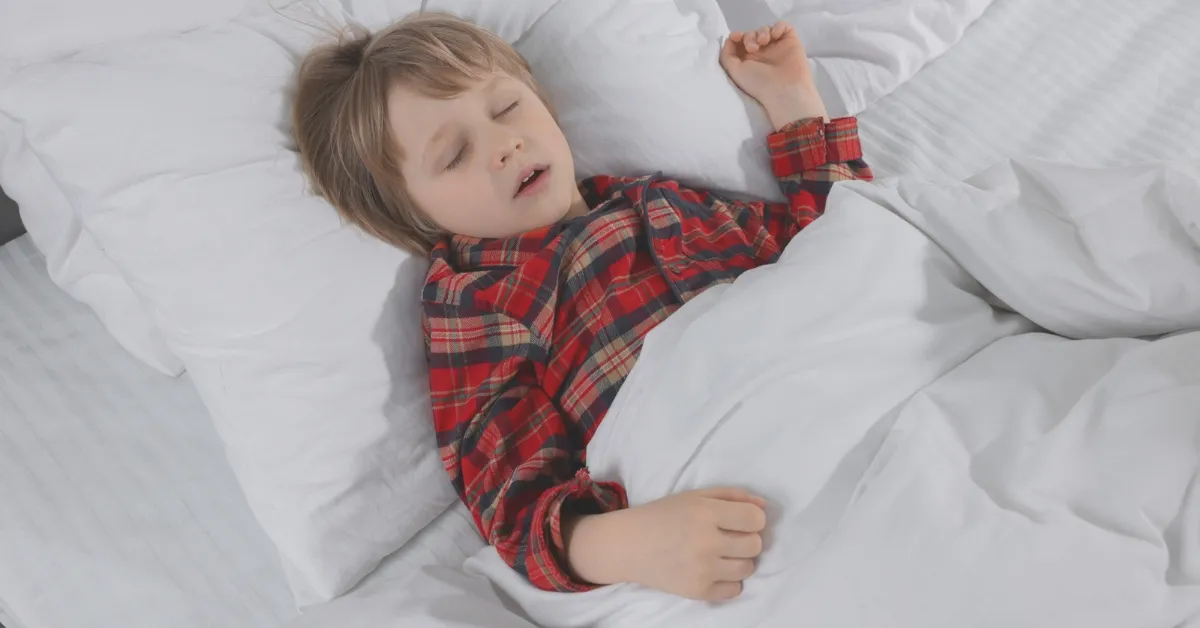Sleep talking, or somniloquy, is a common phenomenon in children and involves talking aloud during sleep without being aware of it. While generally harmless, sleep talking can sometimes disrupt sleep for both the child and others. This article explores the causes, symptoms, and management of sleep talking in children, helping parents understand when it might be time to seek help.
What is Sleep Talking?
Sleep talking refers to verbal expressions during sleep, ranging from simple sounds to full sentences. Children who talk in their sleep are typically unaware of it and have no recollection of it upon waking. It can occur at any stage of sleep, though it’s more common in the lighter stages.
How Common is Sleep Talking in Children?
Sleep talking is most common in children between the ages of 3 and 10. Studies indicate that around 50% of children experience sleep talking at least occasionally, though it often diminishes as they grow older.
Causes of Sleep Talking in Children
While the exact causes of sleep talking remain unclear, several factors may contribute to it:
1. Genetics
• Sleep talking can run in families. If parents or close relatives experience sleep talking or other parasomnias (sleep-related behaviors), children are more likely to exhibit similar behaviors.
2. Stress and Anxiety
• Emotional stress, anxiety, or changes in routine (like a new school or family dynamics) can contribute to sleep talking in children, especially if they have difficulty processing emotions.
3. Sleep Deprivation
• Insufficient sleep can increase the likelihood of sleep talking. Fatigue disrupts normal sleep patterns and may contribute to sleep-related behaviors.
4. Sleep Disorders
• Conditions like night terrors, sleepwalking, or restless leg syndrome may be associated with sleep talking. These parasomnias can often co-occur and may share common triggers.
5. Medications or Health Issues
• Certain medications, especially those that affect the central nervous system, can cause or exacerbate sleep talking. Fever or infections can also sometimes trigger sleep talking episodes.
Symptoms of Sleep Talking in Children
Sleep talking varies widely in its presentation and may include:
• Inaudible mumbling: Children may produce sounds or single words that are difficult to understand.
• Simple sentences: Some children speak short sentences or phrases.
• Emotional expressions: Occasionally, sleep talking includes expressions of emotions such as laughter, fear, or sadness.
• Disruptive outbursts: Rarely, sleep talking may include loud outbursts or even shouting, especially if associated with other parasomnias.
How to Manage Sleep Talking in Children
1. Establish a Consistent Sleep Routine
• A regular sleep schedule can improve sleep quality and reduce sleep disturbances, including sleep talking. Ensure your child gets the recommended amount of sleep for their age.
2. Promote a Relaxing Bedtime Environment
• Creating a calming environment with a set pre-bedtime routine can help ease anxiety. Reading or quiet time before bed can be beneficial.
3. Monitor for Triggers
• Observe if specific events or stressors precede episodes of sleep talking. If emotional stress seems to be a factor, talk to your child about their day and encourage open discussions about their feelings.
4. Reduce Stimulants Before Bed
• Avoid giving children caffeine (e.g., in soft drinks or chocolate) in the hours leading up to bedtime. Stimulants can interfere with their ability to achieve restful sleep.
5. Avoid Discussing Episodes with the Child
• Children often have no recollection of sleep talking, and bringing it up can lead to unnecessary anxiety. Instead, focus on reinforcing good sleep habits.
When to See a Healthcare Professional
While sleep talking in children is usually harmless, consult a healthcare professional if:
• Episodes are frequent and accompanied by other symptoms, such as sleepwalking or night terrors.
• Sleep talking causes significant disruption to the household or affects the child’s daytime function.
• Your child appears excessively tired during the day, indicating possible underlying sleep disorders.
• The sleep talking persists beyond early adolescence.
Final Thoughts on Sleep Talking in Children
Sleep talking in children is a common occurrence, often linked to genetic factors, sleep quality, and emotional health. Most children outgrow sleep talking without the need for medical intervention. However, establishing good sleep habits and ensuring a supportive environment can be helpful. If the episodes are persistent or distressing, consulting a healthcare provider can help identify potential underlying conditions and recommend appropriate management.









